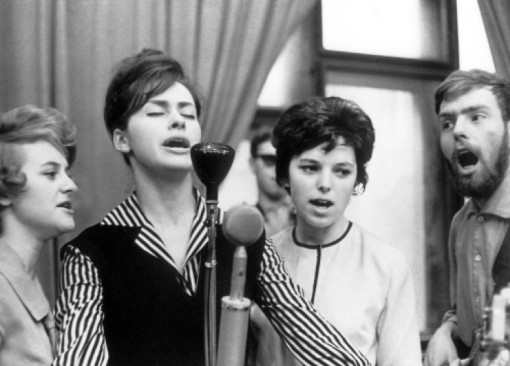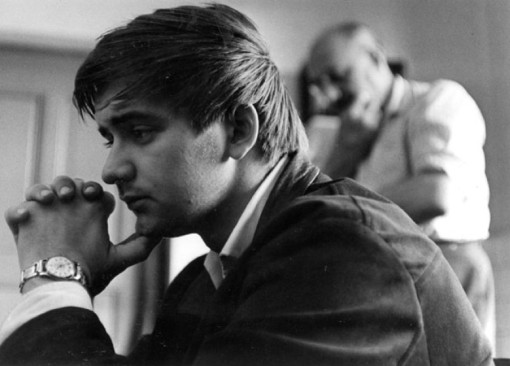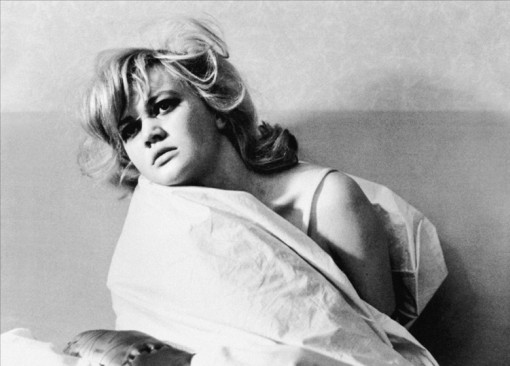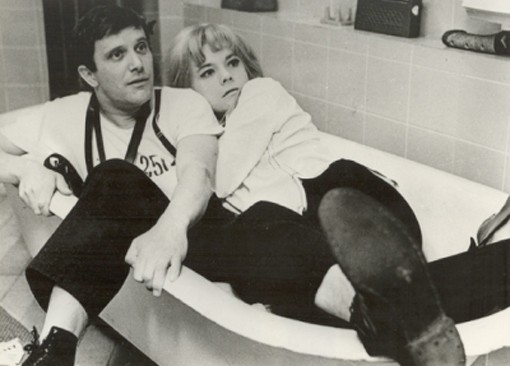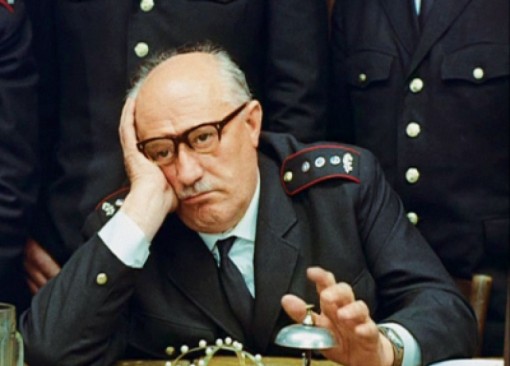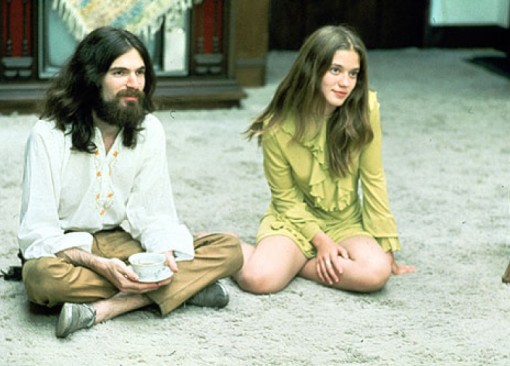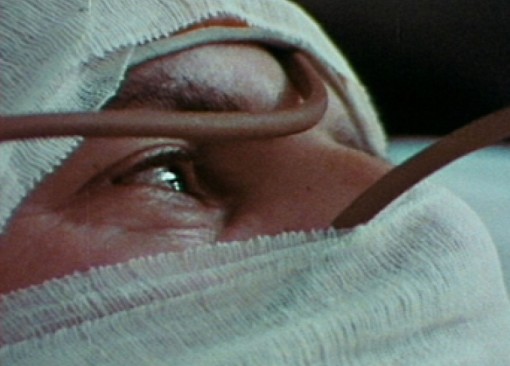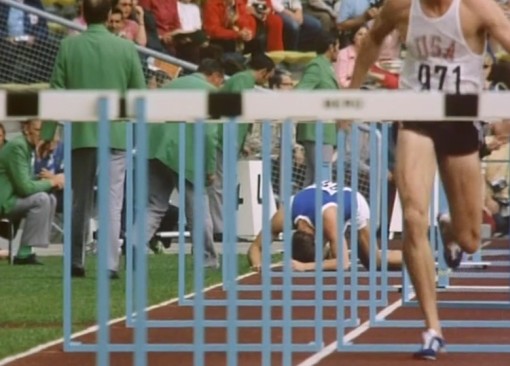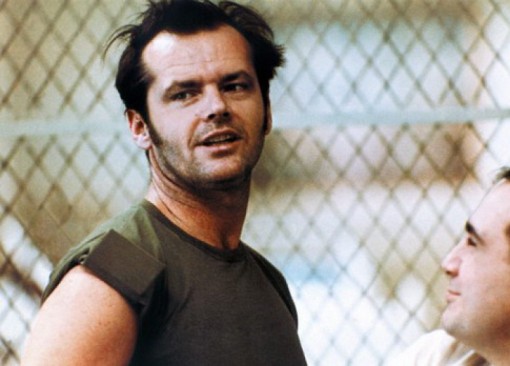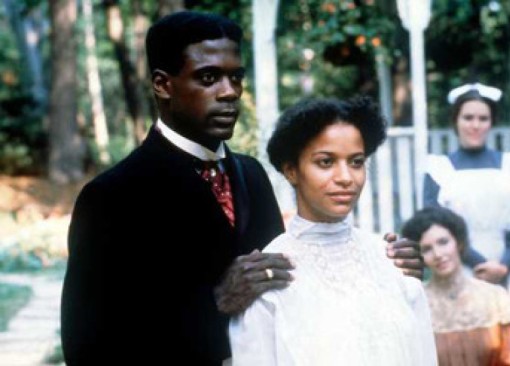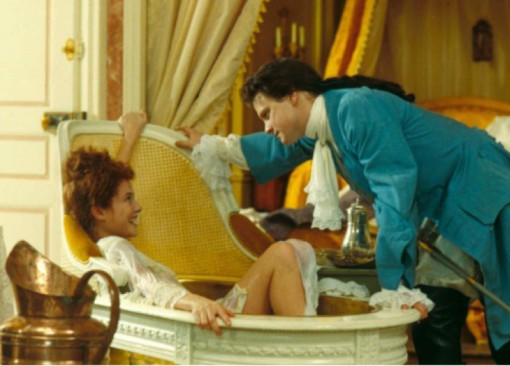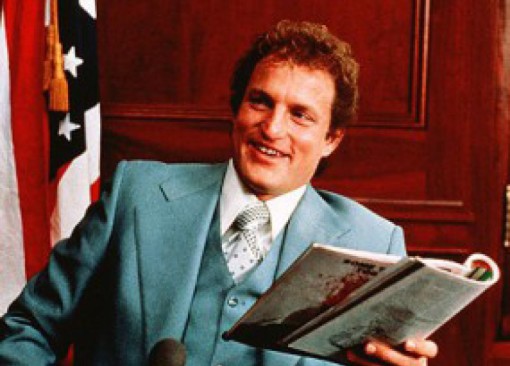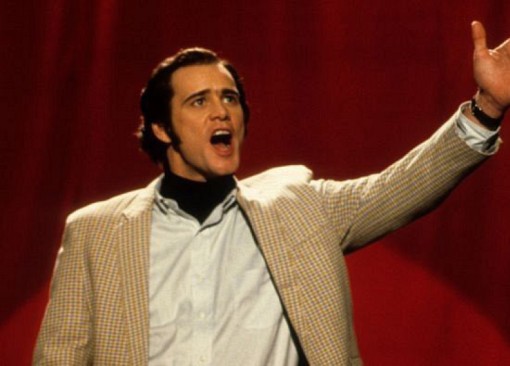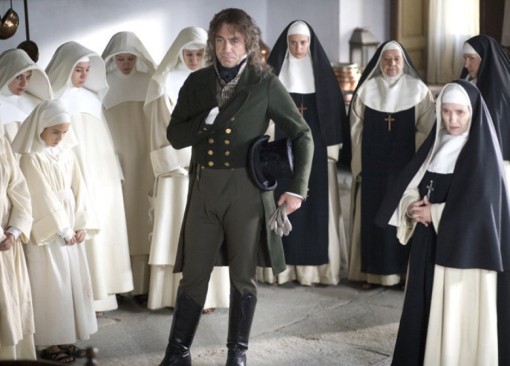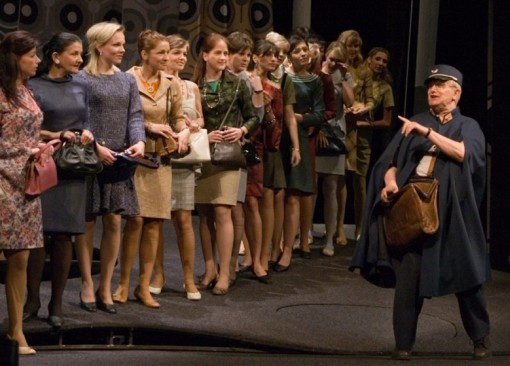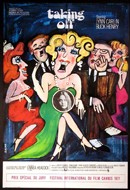“An engaging, episodic, wonderfully fair-minded satire about runaway children and anxious adults.”
“Taking Off” is set in the United States in the late 1960s. Young Jeannie runs away from home to New York City with the hopes of becoming a singer. In New York City she meets a community of hippies and bohemians. Meanwhile Jeannie’s suburban parents search for their missing daughter. The parents’ effort to find and understand their daughter turns into a series of tragicomic and embarrassing situations.
About the movie
One day, fifteen-year-old Jeannie doesn’t come home. Her worried parents start calling her friends. Their neighbours rush to help them. Wives send their husbands to search the streets with Jeannie’s photo. However, the men soon give up and go to a bar.
While Jeannie’s father searches for her at a bohemian café he meets the mother of another missing girl who informs him about a support group for the parents of runaway children. This support group holds regular meetings where they try to understand their children’s interests and reasons for their behaviour.
In what has become as cult scene from the movie, a bohemian psychologist instructs the parents on how to smoke marijuana and all of the parents get stoned. That same evening Jeannie returns home; her drunk and stoned parents wake her up playing strip poker with their friends from the support group.
With this film Forman was making a comment on generational conflict of the late '60s and created a timeless, story about the helplessness of adults whose growing children have become too much to handle. These children try to leave home because they refuse to understand their parents’ conservative lifestyles that are full of daily compromises and resignation.
“Taking Off”is often viewed as a bridge between Forman’s Czech and American productions. His first American movie shares many common themes and formal techniques with his previous Czech films. The most explicit example of this is the quotations from the movie “Audition”.
The theme of generational conflict and the inability to communicate are brought into a different socio-cultural context when we compare the American parents to their Czechoslovakian counterparts. Although both situations are presented as ridiculous, the parents from the American suburbs are portrayed as lost, and the parents from a small town in socialist Czechoslovakia are portrayed as uneducated.
Forman uses his fresh look at American society to his advantage by bringing his amazement at American ordinariness. This becomes clear in his characterization of the conservative parents.
Trivia
- The screenplay was written over two different continents. Forman started to write it with the famous screenwriter, director, actor and producer Jean-Claude Carriér while he stayed in France for a few months.
- The American director John Klein wrote the second draft of the screenplay. Klein was brought onto the project to help authentically convey New York life and the overall mood of America. Forman was ultimately able to relocate to the U.S. because of an agreement between the Czechoslovakian Filmexport and American distribution company Paramount. However, Paramount finally refused the screenplay, so the only chance was to buy the screenplay from the studio and realize it in another production. But for that Forman needed $140 000, which he didn’t have. At last Universal Pictures took over it, bought the rights from Paramount and offered a limited budget of $810 000.
- Forman and his co-screenwriter Jean-Claude Carriér were inspired by a true story from the newspaper and they gathered the material for their film by a method close to documentary making in New York East Village since spring 1968.
- Forman managed to find the actress Linnea Heacock for the leading role, who has nearly the same expression as the actress from his previous movie “Loves of a Blonde”, Hana Brejchova. He came across her among some hippies, when she was splashing about with her friend in Bethesda Fountain in New York Central Park.
- In a crowd of girls for the audition, there were some authentic talents and future movie stars, such as the later owner of an Oscar, Kathy Doyle Bates, who sings a mournful song in the film, “Even Horses Had Wings”.
Milos Forman about the movie
- “I tried to capture as much spontaneity on the film as I could. In the strip poker game near the end of the story, I didn’t let the actors know who was going to lose each hand. For the first time, I arranged the deck the way I needed the game to come out, but the actors were playing real strip poker.”
- “By the time we actually got around to shooting “Taking Off” in the summer 1970, I’d been casting the film for a couple of years. My main helper was the photographer Mary Ellen Mark. Every weekend, Mary Ellen and I would go to watch the Bethesda Fountain in Central Park, where the hard-core hippies mingled with the weekend hippies. It was a street-theater spectacular that never stopped. Mary Elen took pictures and I looked for faces for my film. I was also collecting material for my eventual production of “Hair”, but I didn’t know that at the time.”
- “We shot the movie for $810,000. I deferred my fee, and Mike (producer Michael Hausman) deferred his, too. All the actors worked for scale. Our transportation was Mike driving his own car to the location. The car was no limousine, but it fit Mirek Ondricek (director of photography of the movie, Miroslav Ondricek) and myself in the front seat and our principals Buck Henry and Lynn Carlin with one other actor in the backseat.”
Reviews
English
The Village Voice (Vadim Rizov)
AtTheCinema (Greg Bennett)
Cleveland Press (Tony Mastroianni)
Czech
Britské listy (Jan Čulík)
Odaha.com (Tomáš Odaha)
French
Le Point (Olivier De Bruyn)
Les InRocks (Olivier Pére)
Critikat (Romain Genissel)
TVClassik (Olivier Bitoun)
Culturopoing.com (Guillaume Bryon)
DVDclassik.com
DVDtoile.com
Avoir-alire.com (Virgile Dumez)
German
Locations
USA
-
New York City, NY
- Long Island
- The Parent’s house
- East Village, Manhattan
- The parents search for their daughter after she runs away from home.
Awards
| Event | Place | Award | Category | W/N |
|---|---|---|---|---|
| 1971 | ||||
| Cannes Film Festival (24th Annual) | Cannes France | Jury’s Special Grand Prix Ex-aequo |
Best Feature Film Milos Forman |  |
| BAFTA Awards (The British Academy of Film and Television Arts) | London United Kingdom | BAFTA Film | Best Film |  |
|
Best Director Milos Forman |  | |||
|
Best Actress Lynn Carlin ("Lynn Tyne") |  | |||
|
Best Screenplay Milos Forman, John Guare, Jean-Claude Carrière, John Klein |  | |||
|
Best Supporting Actress Georgia Engel ("Margot") |  | |||
|
Best Film Editing John Carter |  |
|||
| 1972 | ||||
| Bodil Awards | Copenhagen Denmark | Bodil |
Best Non-European Film Milos Forman |  |
| Writers Guild of America Awards | Los Angeles USA | WGA (The Writers Guild Award - Screen) |
Best Comedy Written Directly for the Screen Milos Forman, John Guare, Jean-Claude Carrière, John Klein |  |
Credits
| A Universal Relesas | |
| Forman-Crown-Hausman Inc. production in association with Claude Berri | |
Starring |
|
| Jeannie Tyne | Linnea Heacock |
| Lynn Tyne | Lynn Carlin |
| Larry Tyne | Buck Henry |
| Margot | Georgia Engel |
| Tony | Tony Harvey |
| Ann Lockston | Audra Lindley |
| Ben Locston | Paul Benedict |
| Schiavelli | Vincent Schiavelli |
| Jamie | David Gittler |
| themselves | The Ike and Tina Turner Revue |
| Director of Photography | Miroslav Ondricek |
| Photographed by | Louis San Andres |
| Film Editor | John Carter |
| Associate Producer | Michael Hausman |
| Written by | Milos Forman, John Guare, Jean-Claude Carrière, John Klein |
| Produced by | Alfred W. Crown |
| Directed by | Milos Forman |
| Main Titles by | Elinor Bunin |
Supporting cast |
|
| Mrs. Divito | Rae Allen |
| Committee Man | Frank Berle |
| Policeman (as Phillip Bruns) | Phillip Bruns |
| Nancy Lockston | Gail Busman |
| Corinna Divito | Corinna Cristobal |
| Schuyler | Barry Del Rae |
| Dr. Bronson | Robert Dryden |
| Norman | Allen Garfield |
| Committee Woman | Madeline Geffen |
| Ellen Lubar | Anna Gyory |
| Dr. Bob Besch | Jack Hausman |
| Laurie | Carrie Kotkin |
| SPFC President | Herman Meckler |
| SPFC Member | Ultra Violet |
Audition singers |
|
| Sari and Jamie Freeman, Nina Hart, Michelle Scheideler, Debbie Robbins, Nancy Bell, Nancy Ferland, Jane Bedrick, Susan Chafitz, Meryl Schneiderman, Janie Bosenberg, Kay Beckett, Bobo Bates, Carly Simon, Mary Mitchell, Catherine Heriza, Shellen Lubin, Jinx Rubin, Caren Klugman | |
| Production Manager | Michael Hausman |
| First Assistant Director | Phillip Goldfarb |
| Production Secretary | Fran Boehm |
| Second Assistant Director | Edward Folger |
| Art Director | Robert Wightman |
| Sound Mixer | David Blumgart |
| Script Supervisor | Renata Stoia |
| Gaffer | Milton Moshalk |
| Key Grip | Larry Barr |
| Wardrobe | Peggy Farrell |
| Hair Stylist | Lee Victor |
| Make up | Irving Buchman |
| Sound Editor | Sanford Rackow |
| Rerecording | Dick Vorisek |
| Assistant to Producer | John Starke |
| “Air” | performed by The Incredible String Band, Elektra Records |
| composed by Mike Heron, Paradox Music | |
| “Stranger In Paradise” | music and lyrics by Robert Wright and George Forrest, Frank Music Corp. |
| “Goodbye, So Long” | composed by Ike Turner |
| “Love” | composed by Nina Hart, Golden Bauch Productions Ltd. |
| “Let’s Get A Little Sentimental” | composed by Mike Leander and Eddie Seago |
| “And Even The Horses Han Wings” | composed by Bobo Bates |
| “Long Term Physical Effects” | composed by Carly Simon and Tim Saunders, Timana – Quackenbush Music |
| “Ode To A Screw” | composed by Tom Eyen and Peter Cornell |
| “Lessons in Love” | composed by Catherine Heriza |
| “Feeling Sort of Nice” | composed by Shellen Lubin |
| Dvorak “Stabat Mater” | excerpt by special arrangement with Deutsche Grammophon and Polydor Records |
| Production Filmed Entirely in New York | |
The Producers Acknowledge The Cooperation of |
|
| The New York County Medical Society | |
| The Dept. Of Commerce And Industry (permit and film division) | |
| The New York City Police Department | |
| Color by Movielab | |
| © 1971 Universal Pictures | |
| Forman-Crown-Hausman Inc. production in association with Claude Berri | |





